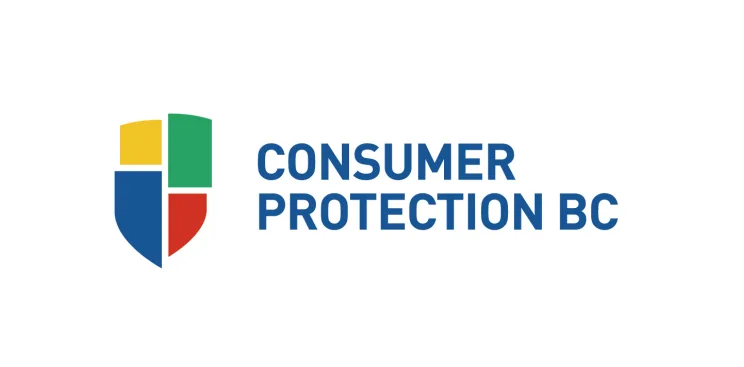
If something I bought is damaged, can I get my money back?
If something’s gone wrong with an item you’ve bought, you may be entitled to a refund, repair, or replacement. Learn about your rights and options if there’s a problem with a purchase.
What you should know
“I bought a bicycle from my local bike shop. On my first long-distance ride, a spoke broke. It gave me second thoughts about the bike. I asked the shop if I could return it for a refund. The guy said no. But he did fix the spoke at no cost. In other words, they wouldn’t let me cancel the contract, but they did perform the contract (by repairing the bike).”
– Harvey, Delta, BC

When you make a purchase, you’re making a contract. As parties to the contract, you and the seller have certain legal rights and obligations. If a party doesn’t do what they said they’d do, they’re in breach of contract.
The law offers three different solutions when a contract has been breached.
The contract can be cancelled. The parties are restored to their original situation.
The party in breach can be ordered to pay damages to compensate the other party for any loss suffered. The damages are designed to put the injured party in the same position as if the contract had been successfully performed.
The party in breach can be ordered to perform the contract. Basically, they’re told to do what they promised in the contract.
Let’s say you bought a new TV and, on getting it home, you plug it in and it doesn’t work. The seller is in breach of contract. The law offers these potential solutions:
The contract is cancelled. You can return the TV and get your money back.
You’re awarded damages to compensate you for any loss. The seller has to pay for the TV to be repaired or replaced. As well, if the TV caused any further damage (let’s say it caused an electrical short that ruined your DVD player), the seller would also have to compensate you for this loss.
The seller is ordered to perform the contract. They give you a working TV.
Which solution applies depends on what’s wrong and what kind of agreement was made.
One factor is whether any breach relates to a condition in the contract. A condition is an essential term in the contract, a term so important that without it one or other of the parties would not have agreed to the deal in the first place. When a condition is broken, the contract can be cancelled.
When a non-essential term of the contract is broken, the injured party can recover damages but the contract can’t be cancelled.
Under the law, a level of quality, performance, and durability is implied in every contract. The other party is in breach of this legal warranty if something you bought:
was unusable for the purpose you bought it for,
was broken or damaged (not of merchantable quality),
gave out after a short period (was not “durable for a reasonable period of time”), or
didn’t match the description of the goods.
If any of these conditions weren’t met, you’re entitled to cancel the contract. Act immediately if you want to pursue this option. If you wait, it gets more difficult to prove that a fault, and not just wear and tear, was the cause of the problem.
The legal warranty can’t help you if the item was damaged by wear and tear, an accident, or misuse. It also doesn’t apply if you examined the goods before buying them and ought to have spotted any defect.
In addition to the legal warranty, many sellers and manufacturers offer a warranty or guarantee for a product. This is their promise about the quality of their goods and what they’ll do if there are problems. Read any warranty or guarantee to see if it covers the problem.
A seller is not allowed to mislead you to convince you to buy something. If you relied on a representation by the seller that was misleading or deceiving, you may be able to cancel the contract if the representation related to a condition in the contract.
If the representation related to a non-essential term of the contract, you’re only entitled to damages to compensate you for any loss you suffered.
If the seller did something unfair or knowingly took advantage of you, any agreement you sign is not binding. You can cancel the contract.
With some purchases and contracts, you can change your mind during a cooling-off period. See our guidance on if you change your mind.
Work out the problem
Once you understand your legal rights and options, decide what outcome you’re seeking. Do you want to return the item and get your money back? Do you want to keep the item but get things put right?
Gather information related to the purchase.
Collect copies of any documents, such as any contract, receipts, correspondence, advertising, or warranty.
Prepare notes of the problem. Include:
details of the problem, including when you first noticed it
anything the other party said that you relied on in making the purchase or contract
what outcome you’re seeking
Start by finding the right person to talk to about the problem. If there’s a complaints department, use it. If there isn't, talk to someone in authority, such as a manager or owner.
You could start with something like this:
My name is __________. I would like to make a complaint about a product I bought from your company. Could you direct me to the person who handles complaints?
They may say you have to make your complaint in writing. If they do, ask for a name and address of the relevant person.
When you find the right person to talk to, clearly explain your problem. Be firm and businesslike, but polite. You can say something like this:
I bought a _________________ on ____________ [date], at ____________ [location]. I am contacting you because the product: [choose one] * is not working right * doesn’t do what it’s meant to do * was not delivered
Let them know you understand what you’re entitled to. Tell them what you want them to do to resolve the problem. You can say something like this:
I think it’s only fair that you: [choose one] * provide me with a refund * replace the product * repair the product free of charge
The person may agree to do what you suggest. In this case, ask when they will. Ask them for their name so you can refer to the conversation later. Follow up with a written note confirming what was agreed to.
If the person doesn’t agree to do what you suggest, ask who you can contact with a formal complaint. Get the address of that person.
Make notes of your conversation. Date your notes.
If discussing the situation with the other party doesn’t resolve the problem, the next step is to send a complaint letter.
The letter should cover these points:
a description of what was bought or agreed to (include the date)
anything the other party said that you relied on in making the purchase
details of the problem, including when you first noticed it
what you’ve done to try to resolve the problem
what you want them to do to resolve the problem
You can use our template letter to write to the other party.
Give a time frame for them to address the problem. Usually 10 working days is enough. You can write something like this:
I look forward to your reply and to resolving the problem, and will wait until ___________________ [date] before taking my next step. Please contact me as soon as possible at the above address or by telephone at ____________.
You can also say what you’ll do next if they keep ignoring you. For example, you might say that your next step will be to file a complaint with the Better Business Bureau or Consumer Protection BC, or to seek legal advice.
If you want to be sure the other party receives your letter, send it by registered mail.
Keep a copy of your letter.
If you still don’t get a satisfactory response from the other party, you can file a complaint with a consumer protection agency.
For certain types of problems and contracts, one option is Consumer Protection BC. They investigate situations where the other party may have done something unfair or knowingly took advantage of you. As well, they can help resolve problems involving direct sales contracts (such as door-to-door sales), continuing service contracts (such as memberships in fitness clubs or yoga studios), and distance sales contracts (such as online purchases).
Another option is the Better Business Bureau, which receives complaints about local businesses.
If you can’t solve the problem with the procedure above, your next step may be to take legal action. You can consider suing the other party for breach of contract. If you decide to sue, note that there are time limitations on filing lawsuits. If you don’t have a lawyer, there are options for free or low-cost legal help.
Who can help

Consumer Protection BC
Assists with some consumer problems and contracts. Includes online complaint form.

Better Business Bureau (BBB)
Receives complaints about local businesses that are members.

Competition Bureau
Deals with complaints about false or misleading advertising.

Access Pro Bono’s Everyone Legal Clinic
Clinicians provide affordable fixed-fee services on a range of everyday legal problems.

Lawyer Referral Service
Helps you connect with a lawyer for a complimentary 15-minute consult to see if you want to hire them.

BC Legal Directory
Search for a lawyer by community or legal issue. From the Canadian Bar Association, BC Branch.
